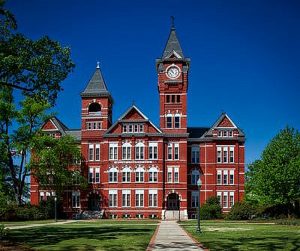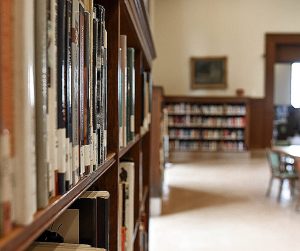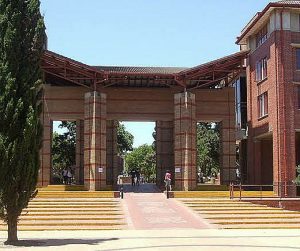Differences Between Private And Public Schools: Schools are approved academic institutions for a systematic impart of skill and knowledge on the people regarded as students, scholars or pupils. The different levels of schooling are primary or elementary level, secondary level and the tertiary level. The usual nomenclature may differ in countries where the levels are known as high school, colleges and universities, and this is of no significance but merely a disparity in usual nomenclature.

In every capitalist state or state that practice mixed economy, schools can be publicly or privately owned in all levels of academic learning. What this means is that whether primary, secondary or tertiary level can be owned and managed by either private individuals or the government.
Recommended: Day vs Boarding School, Which is Better? Answered
What Are Private Schools?
Private schools are those approved formal academic institutions which are owned, funded and managed by private individuals as opposed to the government. In most countries, private individuals are at liberty to own and manage schools at any academic level. However, their policies must always be in compliance with the extant state laws.

The government does not necessarily interfere in matters of private schools or even intervene via funding. The teachers and other workers in a private school are not responsible to the government. They rather owe their responsibility to the owners and the management of the school. They also receive their salaries and allowances from the school management.
It is a general notion and practice that private schools are usually more expensive just like every other private enterprise as opposed to publicly funded ones. The reason for this is clear. The running and maintenance of schools is an expensive task. Each day students spends in school, a lot of money is being expended from the school purse.
Private schools only rely on income generated from the fees and levies paid by the students. Income can also be generated from donations made by philanthropists to the school, operation of canteens, investments such as building and renting of halls, and so on. A school is private because; its ownership is identifiable to a known private individual or group, and it is funded and managed by the private persons on their own terms and generated resources.
Also see: Advantages and Disadvantages of Being an Entrepreneur
What Are Public Schools?
These are schools owned, managed and funded by the government. In public schools, the government is fully concerned and involved in the management of the school. The teachers and other employees in a public school are public workers. They are employed and paid by the government. The management of public schools is the representative of the government and the entire citizenry. They are directly responsible to the federal or state government, as the case may be.

Public schools are run in accordance with state policies; although this does not suggest that there is maximum government interference. It is the direct responsibility of the government to fund public schools.
Recommended: Countries where Education is totally free
Public schools are generally less expensive than private schools and this is because the government channels a subsidy to the public schools by building and revitalization of structures and payment of teachers’ salaries and allowance. Public schools also generate income from public donations and investments. A school is public because its ownership is not identifiable to any known person but the government.
It is possible for a school which is originally a public school to be handed over to private individuals or group. It is also possible to have a setting where a school is funded by the government and managed by private individual or group. A case study is the handing over of some public secondary schools to the mission by the Anambra State government under the governorship tenure of His Excellency, Mr. Peter Obi. The schools were handed over to the private (mission) for management while the government retains its ownership and the responsibility to pay the teachers’ salary.

Also see: Cheapest Countries to Study in the world
Differences Between Private And Public Schools
1. Admission and Funding: Public schools are administered and funded by the government. The government has the civil obligation to fund government owned school and pay teachers’ salaries and allowances. The government here could be the state or federal government.
Federal schools are to be funded and administered by the federal government while state schools are to be funded and administered by the state government. For private school however, it is administered by the private owners. Private schools are funded from funds generated from the student’s tuition fees and other levies and their other possible means of income generation.
2. Cost Of Tuition: Just like every institution managed by the government, public schools are relatively more affordable when compared to private schools. This is because the government is the one responsible for paying the workers’ salaries and other major projects in public schools. Government intervention in public schools operates as subsidy thereby making the tuition fees less expensive.
On the other hand, private schools depend wholly or partly on the tuition fees and other levies paid by the students for the management and operation of the school. There is no such thing as government intervention in private schools via funding. Tuition fees for private schools are always exorbitant.
Recommended: Habits of successful students explained
3. Responsibility and Allegiance: In every academic institution, the administrators of managerial positions are answerable to an upper hand. The administrators of private schools owe their responsibility and allegiance to the private owners (proprietor) of the school, whereas for public schools, the administrators owe their responsibility and allegiance to the stat (the relevant government level).
4. Workers’ Salary: For public schools, the salaries and allowances of the teachers and other workers is paid by the relevant government whereas for private schools, the management sees to the payment of the workers’ salary.
Also see: Advantages and Disadvantages of Being an Entrepreneur
5. Free Education Policy: Practically speaking, free education policy where one exists, can only be obtainable in public schools. It is possible for the government to run a free education scheme covering specified levels of education.
In fact, in some countries like Germany, Finland, Norway, Czech Republic, Sweden, Austria, Slovenia, and so on, their government offer free education at some levels but it is only obtainable in their public schools. On the other hand, free education is not a feature known to private schools. In fact, running a free education scheme in private schools is almost impracticable. Free education can be obtained in private schools only by limited head counts of scholarship.
6. Security of Employment: It is a lot easier to terminate teacher’s and other worker’s job appointing in private schools. The owner and managers reserves the power to hire and fire at any time without much bureaucracy.
For public schools however, appointment comes far from the government and only the government reserves the power to terminate one’s employment as a teacher in a public school. This power is rarely exercise, at least less frequent than in private schools, and the procedure is not a simple one.
Also see: Advantages and Disadvantages of being an Entrepreneur
7. Degree of Autonomy and Interference: Private schools enjoy certain degree of autonomy and limited interference from the government, whereas public schools are owned, funded and managed by the government and therefore cannot escape government interference.
8. Observance of Public Holidays: Private schools are not bound to observe certain public holidays declared by the government, whereas public schools are bound to observe same. This too explains the minimal government interference in private schools.
Recommended: Differences Between Objective And Subjective
Conclusion
The difference between private and public schools is a fine one. The center line of their differences lies on the management, ownership and funding.

Edeh Samuel Chukwuemeka, ACMC, is a lawyer and a certified mediator/conciliator in Nigeria. He is also a developer with knowledge in various programming languages. Samuel is determined to leverage his skills in technology, SEO, and legal practice to revolutionize the legal profession worldwide by creating web and mobile applications that simplify legal research. Sam is also passionate about educating and providing valuable information to people.